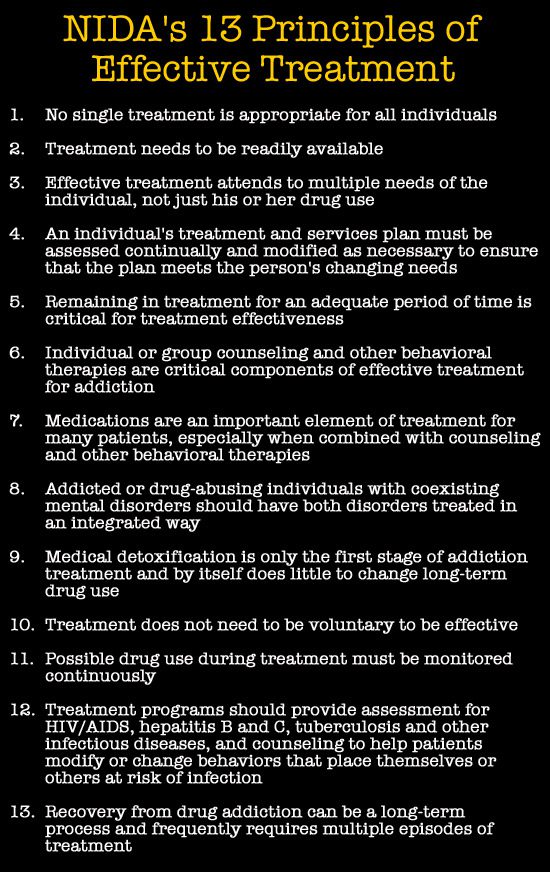The National Institute on Drug Abuse (NIDA) is a federal agency affiliated with the National Institutes of Health (NIH), and its mission is to use scientific research about drug and alcohol abuse to aid in prevention, treatment, and public policy.
In 1999, NIDA issued 13 principles of effective treatment for drug addiction, and these principles still hold true today. These were formulated after years of research and evidence that shows all of these must be applied together for treatment to be successful.
What are NIDA’s 13 Principles?

1. Treatment should be individualized to suit the needs of each person.
2. Because addiction is a 24/7 disease, treatment should be available at all times, not just when it is convenient.
3. Treatment should address all of a person’s needs not just addiction. Mental disorders such as depression, anxiety, PTSD, and others can have an impact on addiction and vice versa.
4. Treatment must be assessed continuously to ensure current needs are being met aa well as any changes that occur.
5. The duration of treatment is critical and must be long enough to be successful. No two people are alike and some move through recovery at a different pace than others.
6. Many therapies are needed for success, including individual, group, and cognitive therapies that treat the whole person.
7. Studies have shown that medication, when combined with psychotherapy, is more effective than only one or the other alone.
8. When co-occurring disorders exist, such as addiction and mental health issues combined, both should be treated simultaneously.
9. The first stage of addiction treatment is Detox, when appropriate, but it has little outcome on long-term recovery.
10. To be effective, treatment does not need to be voluntary, and family or peer intervention can have an impact.
11. Drug use during recovery needs to be monitored at all times.
12. Assessment is mandatory for infectious diseases, such as HIV, hepatitis and others during recovery, and counseling should be available to address them.
13. Addiction recovery is a long-term process that is often accompanied by relapse.
While these 13 principles are essential for successful treatment and recovery for drug and alcohol addiction, they are by no means the only ones to consider. Nonetheless, any program that is serious about recovery should include at a minimum every one of the items on the list.
Related:
Individualized Drug Rehab Treatment
NIDA’s Definition of Addiction





